Lessons in chemistry: Agrarian Kitchen experience reveals philosophy behind Rodney Dunn’s success
If you spend a day cooking at the Agrarian Kitchen, you not only come away with a full tummy, but an insight into the secrets of the award-winning eatery’s success. Rodney Dunn’s top tips >>>
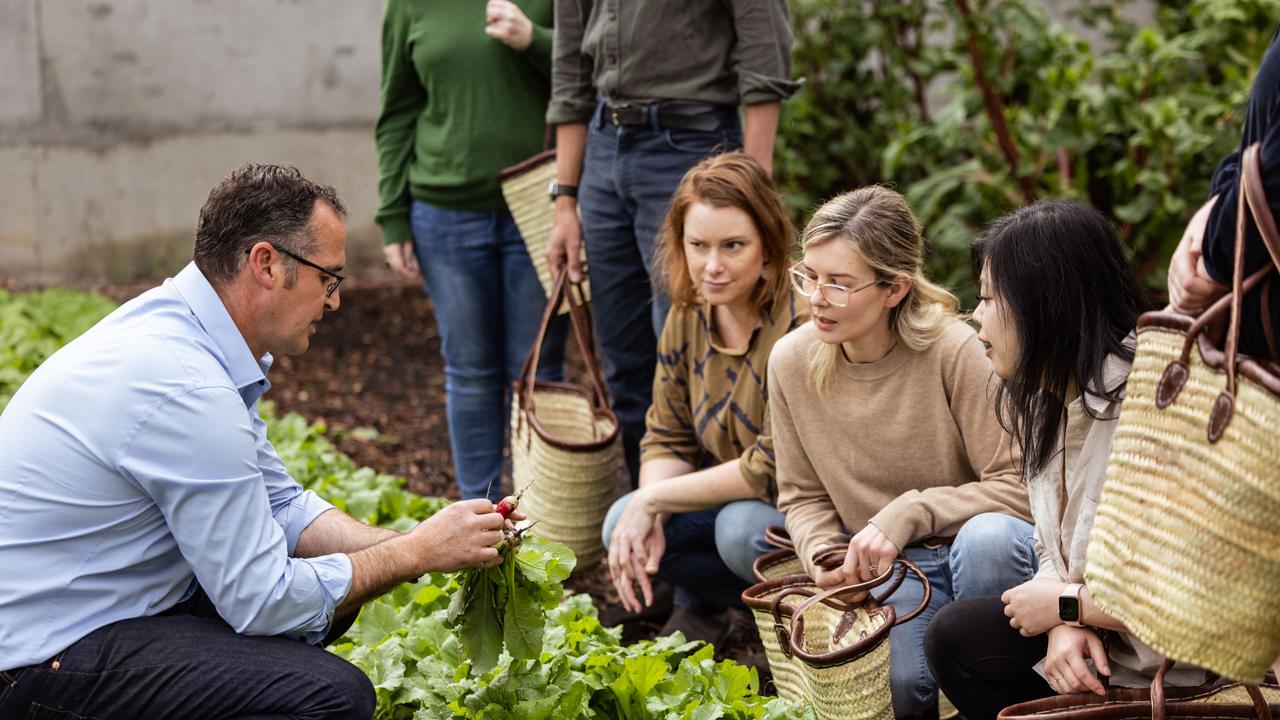
Food
Don't miss out on the headlines from Food. Followed categories will be added to My News.
If you sign up for the Agrarian Kitchen Experience expecting just a cooking class, you’re in for a surprise.
It becomes clear within the first few minutes of standing behind the cool, polished bench in the sparkling purpose-built kitchen, that this will be no ordinary food experience.
We meet Rodney Dunn, Agrarian Kitchen’s co-founder and executive chef, and it’s immediately apparent that there is a sense of purpose in what he does. And there’s science.
He runs through the order of proceedings giving us an insight into the philosophy behind one of the state’s most successful restaurants.
His knowledge of cooking and the produce used to achieve delicious dishes is obvious as he gives a potted history of his own culinary journey. He describes how he progressed from serving as an apprentice chef under the famous Tetsuya Wakuda in Sydney’s famed Tetsuya restaurant, through food media developing recipes for several Australian food magazines and then as food editor of the Australian Gourmet Traveller.
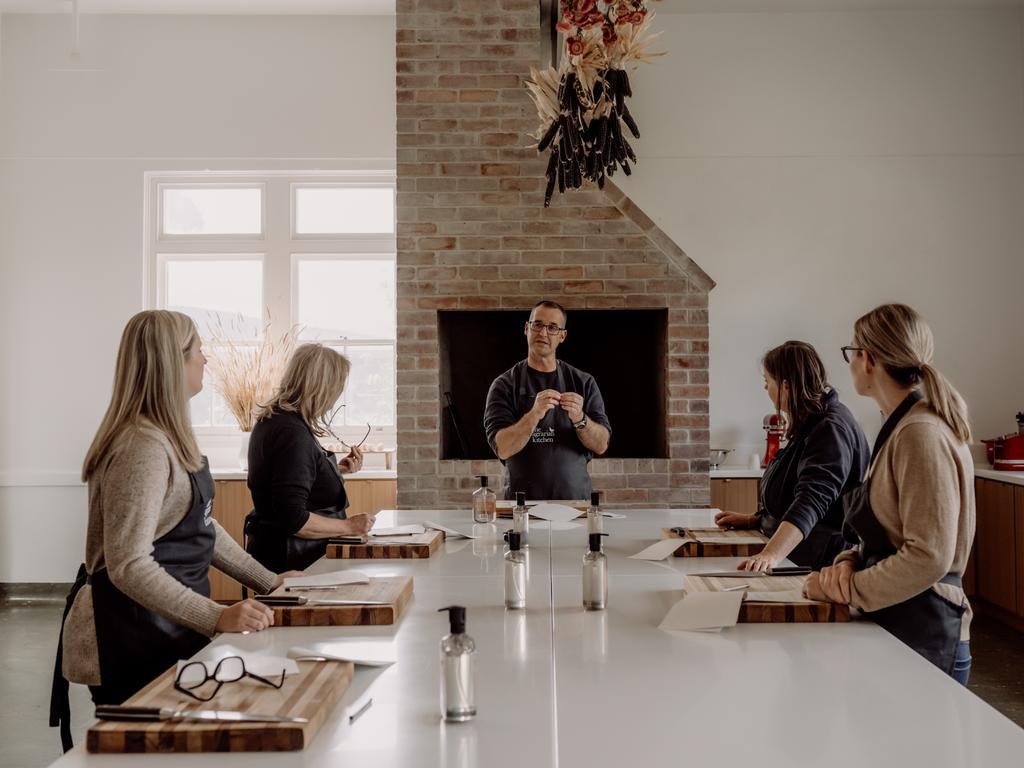
In 2007 he and partner Severine Demanet moved to Tasmania to establish the Agrarian Kitchen Cooking School on a property at Lachlan, just outside of New Norfolk.
Their farm and redeveloped Old Lachlan Schoolhouse allowed them to highlight the benefits of paddock to plate cooking, using sustainably grown “real” ingredients.
Nine years later they established the Agrarian Kitchen Restaurant in the Bronte building at Willow Court – the town’s former mental asylum.
Their restaurant has gone from strength to strength winning many awards along the way.
Covid lockdowns gave them time to work on a strategy to develop the Willow Court site by establishing a garden in the walled courtyard behind the restaurant.
That allowed Rodney and Severine to move the Lachlan cooking school, a year ago, to the Willow Court site. The classes are now held in a brand-new kitchen equipped with large ovens, convection cooktops, modern stainless steel benches and sinks and even a large open fire.
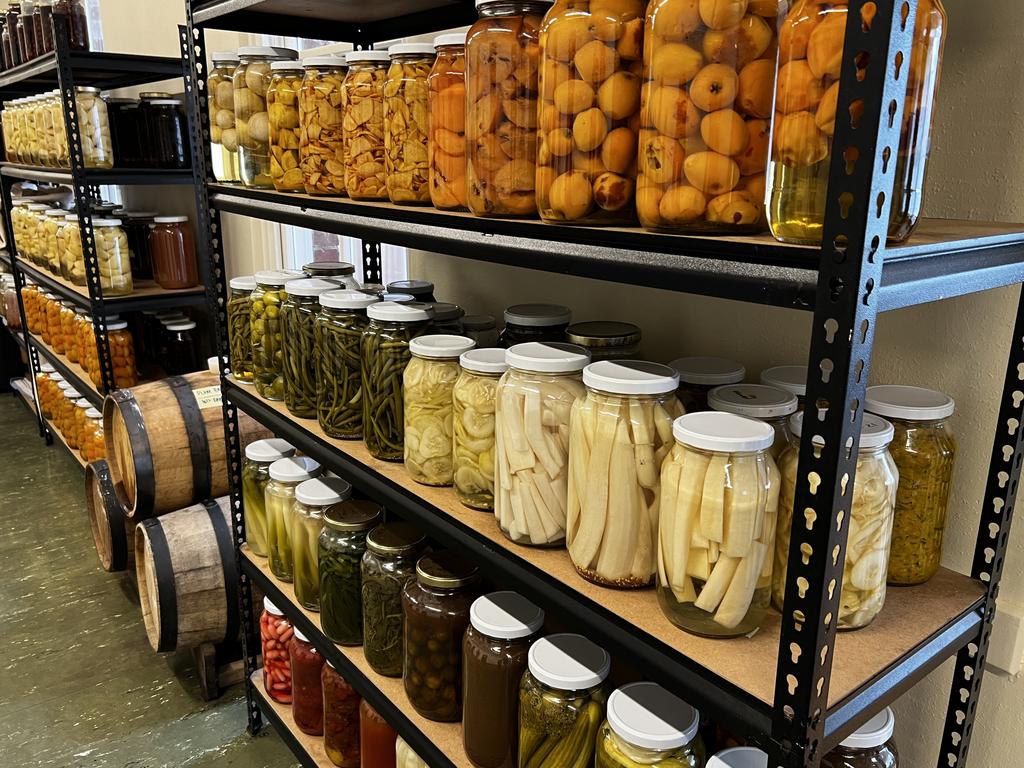
We head out towards the garden to harvest ingredients for the day’s recipes but we first stop in the hallway in front of a wall of large glass bottles. At first glance they appear filled with preserved produce from the garden – there are rows of summer fruits and pickled vegetables. Rodney pulls a curtain to reveal another row of bottles – which frankly look a little bit gross. They are labelled sausage, lamb, mushroom and beef.
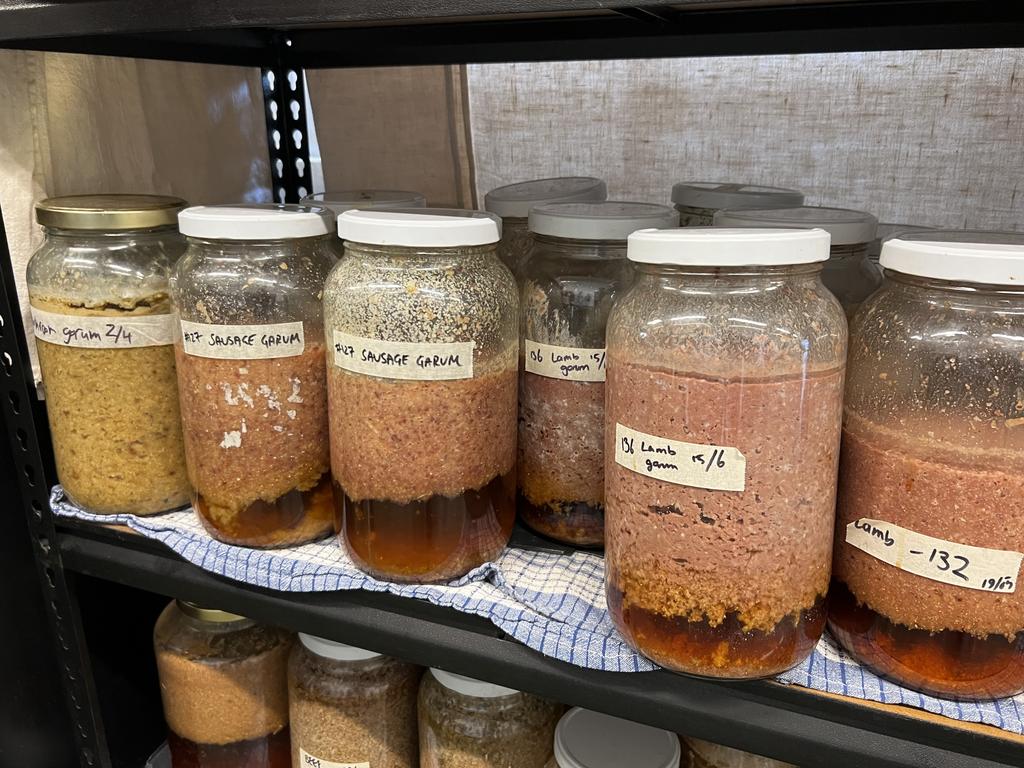
Rodney explains that this is waste from the kitchen being fermented using koji moulds into garum – a type of flavoured umami-rich condiment, like fish sauce, used to boost flavour in dishes.
It suddenly feels a bit like a chemistry class.
That sustainable use of waste is also apparent in the garden. It’s no ordinary veggie patch as we soon discover on a tour of the 4000 sqm space. Surrounded by 5m walls, which once kept the patients in and now keeps the possums out, the vast area has been meticulously designed. Almost every centimetre has been used to grow produce which dictates what is served in the restaurant and used in the cooking school.
We pick beetroots and herbs and peas which later feature in the dishes we cook.
The gardening too is based in science

Lockdowns allowed the team to plan the space. There are rows and rows of crops. There are berry plants, olive trees and limes planted against the warm high walls. There are shade houses and hot houses where the gardeners are even trying to grow bananas and lemongrass.
It’s a no dig principle. The technique reduces weeds and keeps nutrients in the soil. Biochar is produced from leftover bones cooked in the wood-fired oven overnight.
One corner is reserved for composting. Big barrels of waste, piles of vegetable matter and a series of skip-sized bins turn 12-tonnes of waste each year into a rich compost which feeds the crops. There are thermometers sticking out of piles of compost. It’s obviously a carefully monitored process.
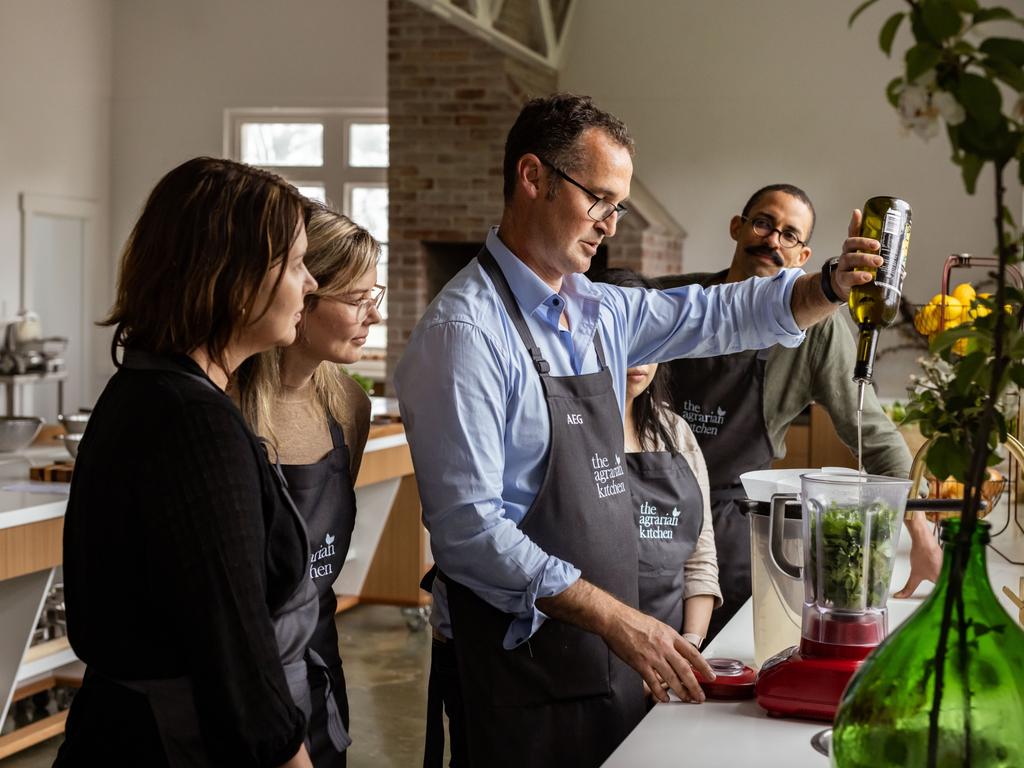
It’s more than 90-minutes before we don our aprons back in the kitchen and begin to cook.
We are divided into pairs to prepare six dishes which we eat later with paired wines for a late and leisurely lunch.
On the menu is potato gnocchi with peas and asparagus as entree and a main of rolled leg of lamb with herbs and sides of a chermoula pumpkin with quinoa and yoghurt along with caramelised beetroot with caraway and walnuts. There is also flatbread to go with that. For dessert there are cherry frangipane tartlets.
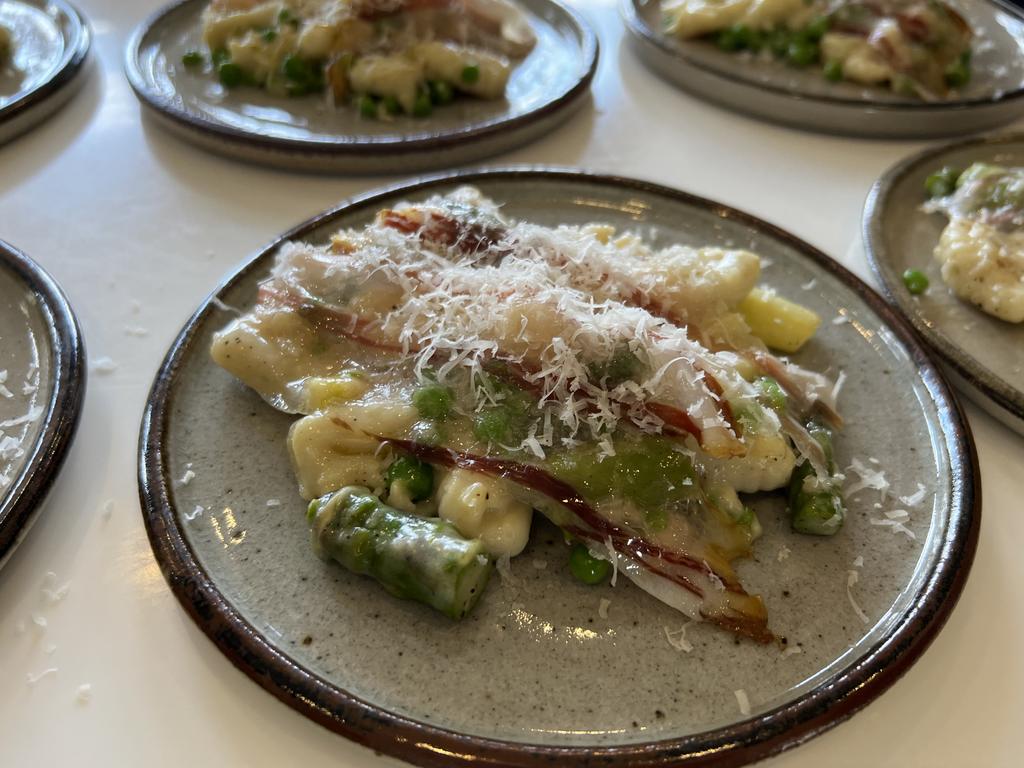
I have my adult son with me. At home we sometimes compete for space in the kitchen. Today it’s knives down and we play nicely.
We have the beetroot dish and flatbread to take care of. The mood is cheerful and fun.
Rodney provides helpful tips on how to get the best results. Along the way he stops the class to show us all how to master certain techniques. He shows us how to bone the lamb leg and tie it for cooking. He demonstrates an ingenious way to create the perfect crème patisserie and the best way to roll out the shortcrust pastry for the frangipane tartlets.
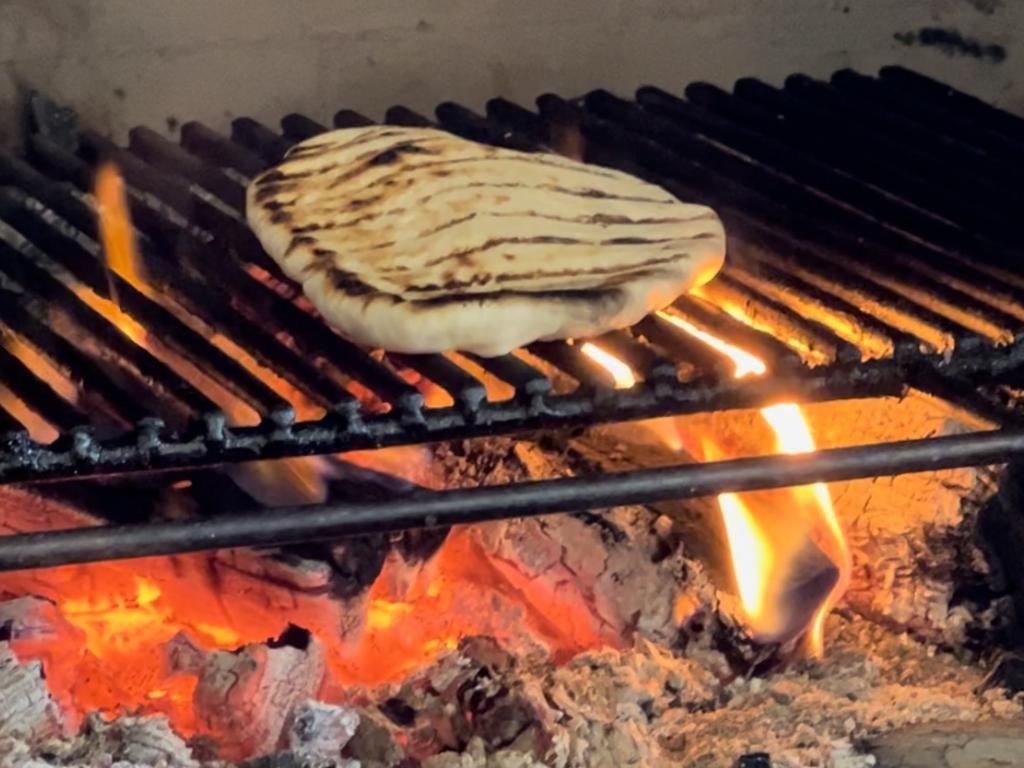
Kneading the flatbread dough is all about stretching out the gluten molecules. Gnocchi curls involve the dexterous use of your thumb on a little grooved board.
“My best advice for home cooks is to focus on technique over recipe so whatever you do, keep it simple and do it well,” Rodney says.
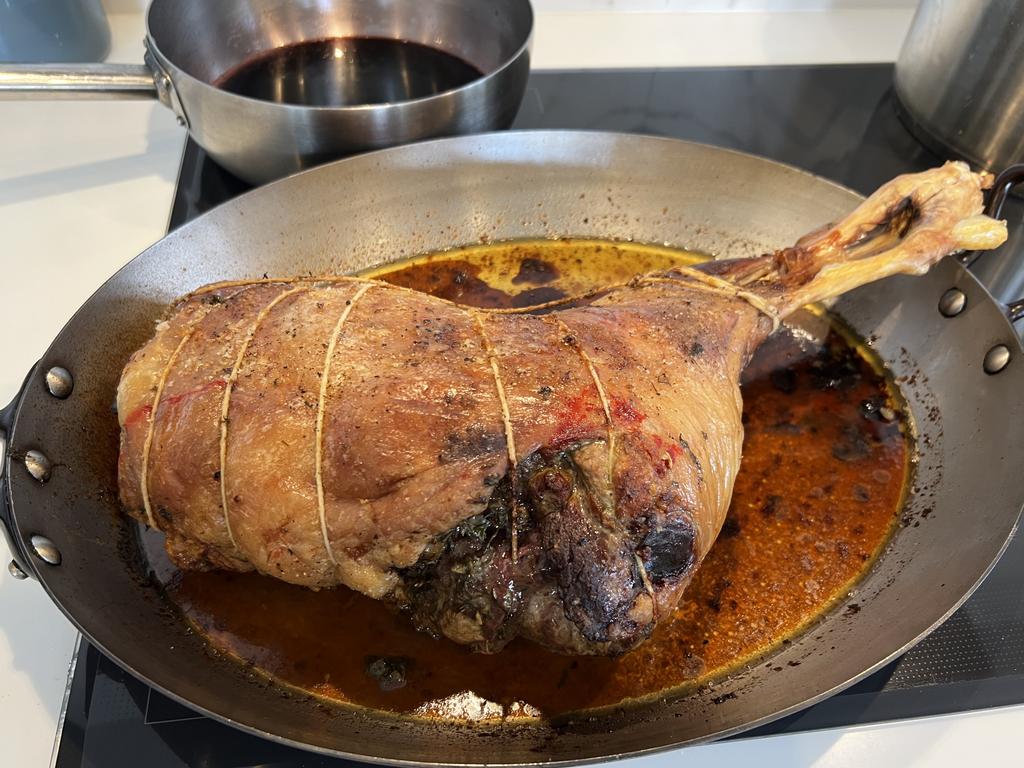
It all comes together without too much drama. There are no raised voices, or Ramsay rants.
Rodney is patient, calm and generous with his advice.
The classes are more than a cooking experience, they provide a chance to share in what makes the Agrarian Kitchen such a success.
Yes there is a lot of science behind that success but there is also that type of chemistry which is more difficult to measure – that intangible attraction which draws you in and keeps you yearning for more.
AGRARIAN KITCHEN EXPERIENCE
Held weekly throughout the whole year
Cost: $440.00 per person
Duration: 9-4pm
Guests per class: 12
Location: The Agrarian Kitchen, 11A The Avenue, New Norfolk, Tasmania, Australia
Inclusions: Tour of The Agrarian Kitchen’s garden, hands-on cooking experience, lunch matched with wine, recipes
More Coverage
Originally published as Lessons in chemistry: Agrarian Kitchen experience reveals philosophy behind Rodney Dunn’s success







